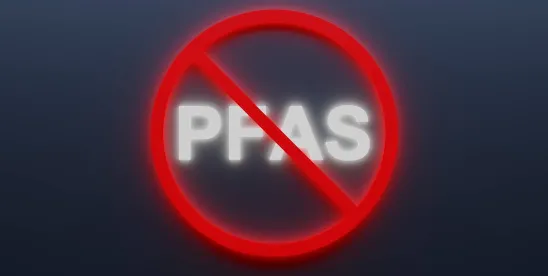European Union
- Progress update on the Universal PFAS restriction proposal – The European Chemicals Agency (ECHA) has confirmed that its scientific committees will resume discussions on the universal PFAS restriction under REACH Annex XVII in September. The Committee for Risk Assessment (RAC) will meet from 8–12 September 2025, and the Committee for Socio-Economic Analysis (SEAC) from 15–19 September. At these meetings, experts will assess the restriction’s implications for specific sectors. RAC will focus on electronics, semiconductors, PFAS manufacturing, and horizontal concerns. SEAC will address lubricants, energy, and socio-economic impacts in these same sectors. These discussions will inform the draft opinions to be finalized in the coming months.
- New EU chemicals action plan and PFAS monitoring framework – On 8 July, the European Commission released a chemicals action plan that includes the creation of a major EU-wide PFAS monitoring system. The framework will consolidate data, identify pollution hotspots, and highlight best practices for remediation. It also aims to improve coordination across member states and encourage technological solutions. The plan aligns with Safe and Sustainable by Design (SSbD) goals and supports innovation in chemical substitution. A public-private initiative will be launched to address legacy PFAS contamination. Stakeholder dialogue will ensure a shared understanding of PFAS-related challenges and foster cooperation across the EU.
France
- Legal action against French cookware brand – Environmental groups have filed legal action against a French cookware brand for marketing PTFE-based nonstick pans as “safe.” The plaintiffs argue the claims are misleading and overlook long-term risks. The company claims that its pans are free of PFOA, a banned PFAS, and that the PTFE used in their coating does not pose any danger, even in the event of accidental ingestion. However, the plaintiffs argue that these marketing statements are misleading and downplay the broader environmental and health risks associated with PFAS substances, including PTFE.
- Tax on hazardous imports – France plans to introduce a €2 tax on small online packages, particularly those valued under €150 and often imported from China, in an effort to curb the influx of products containing hazardous chemicals, including PFAS. These small packages have typically evaded customs scrutiny and regulatory costs, raising concerns about their chemical composition. The tax also complements other national efforts to regulate harmful imports, including proposed legislation targeting the environmental impact of fast fashion and the chemical safety of products sold by platforms such as Shein and Temu.
Denmark
- Ban on pesticides linked to PFAS pollution – Denmark has announced a sweeping national ban on 23 pesticides after confirming their breakdown into trifluoroacetic acid (TFA), a persistent PFAS pollutant. The banned products include commonly used fungicides and herbicides, several of which are still on the market. The decision follows research showing TFA’s harmful effects on groundwater and public health. Authorities say the move prioritizes water safety despite economic impacts on sectors like potato starch production. Additional regulatory decisions are expected by September.
The Netherlands
- Dutch government rules out national PFAS ban – The Netherlands has decided not to pursue a national ban on PFAS, despite political and municipal pressure. Ministers argue that such a ban would strain enforcement efforts, increase costs, and create disparities within the EU single market. They emphasized that a national ban would not significantly accelerate environmental improvements. The Dutch government, which is currently operating in caretaker mode, maintains its commitment to the 2023 universal EU restriction proposal.
Italy
- Italy issues landmark ruling on PFAS contamination – On 26 June, an Italian court sentenced 11 chemical executives to prison for their role in PFAS pollution in Trissino, marking a historic verdict. Jail terms ranged from 2.5 to 17 years and targeted managers from multinational companies. The ruling highlights the criminal risks associated with chemical misuse and underscores the need for robust internal compliance. The decision may spur similar cases across Europe.
Other
- Trifluoroacetic acid in water under EU scrutiny – Concerns over trifluoroacetic acid (TFA) levels in drinking water have prompted political pressure in Brussels. Following an investigative report, Green Party MEPs submitted written questions to the Commission, calling for updates to the Drinking Water Directive. They also urged a full ban on sources of TFA, such as certain pesticides and fluorinated gases. Separately, PAN Europe submitted a formal review request under the Aarhus Regulation, challenging the Commission’s inaction. The request sets a 10 November deadline for response and may lead to legal action. TFA’s classification as reprotoxic has intensified calls for regulatory reform.
- EU ministers undergo PFAS blood testing in Denmark – In a symbolic gesture, EU environment ministers voluntarily had their blood tested for PFAS exposure during a Council meeting in Aalborg. The initiative, led by Denmark’s environment minister, aimed to raise awareness of the pervasiveness of these persistent substances. Preliminary findings from a Dutch study indicate PFAS is present in nearly everyone’s blood, often exceeding health-based limits. Ministers from France, Germany, Belgium, and Hungary participated, alongside Environment Commissioner Jessika Roswall. The test results are expected after the summer. The event highlights growing concern over PFAS health effects and supports calls for stronger EU-wide regulation.






 />i
/>i

